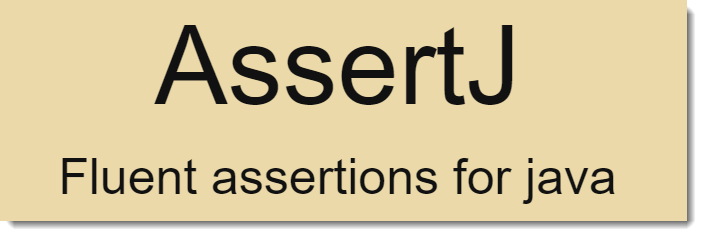JUnit 5 + AssertJ examples

In this article, we will show you how to write test assertions with AssertJ.
P.S Tested with JUnit 5.5.2 and AssertJ 3.14.0
pom.xml
<dependency>
<groupId>org.junit.jupiter</groupId>
<artifactId>junit-jupiter-engine</artifactId>
<version>5.5.2</version>
<scope>test</scope>
</dependency>
<dependency>
<groupId>org.assertj</groupId>
<artifactId>assertj-core</artifactId>
<version>3.14.0</version>
<scope>test</scope>
</dependency>
1. JUnit 5 assertions to AssertJ
It’s easy to convert JUnit 5 assertions to AssetJ, see the following syntax:
JUnit 5
assertEquals(expected, actual);
assertEquals(expected, actual, "assertion desc");
AssertJ
assertThat(actual).isEqualTo(expected);
assertThat(actual).as("assertion desc").isEqualTo(expected);
2. AssertJ
2.1 Some typical test assertions with AssertJ – String, List, Map and Exception.
AssertjTest.java
package com.mkyong.assertions.assertj;
import org.assertj.core.api.InstanceOfAssertFactories;
import org.assertj.core.data.Index;
import org.junit.jupiter.api.Test;
import java.util.Arrays;
import java.util.HashMap;
import java.util.List;
import java.util.Map;
import static org.assertj.core.api.Assertions.as;
import static org.assertj.core.api.Assertions.assertThat;
import static org.assertj.core.api.AssertionsForClassTypes.assertThatThrownBy;
public class AssertjTest {
// assert string
@Test
void test_string_ok() {
String name = "I am Mkyong!";
assertThat(name)
.as("if failed display this msg!")
.isEqualTo("I am Mkyong!")
.isEqualToIgnoringCase("I AM mkyong!")
.startsWith("I")
.endsWith("!")
.containsIgnoringCase("mkyong");
}
// assert list
@Test
void test_list_ok() {
List<String> list = Arrays.asList("Java", "Rust", "Clojure");
assertThat(list)
.hasSize(3)
.contains("Java", "Clojure")
.contains("Java", Index.atIndex(0))
.contains("Rust", Index.atIndex(1))
.contains("Clojure", Index.atIndex(2))
.doesNotContain("Node JS");
}
// assert map
@Test
void test_map_ok() {
Map<String, Object> map = new HashMap<>();
map.put("name", "mkyong");
assertThat(map)
.hasSize(1)
.extractingByKey("name", as(InstanceOfAssertFactories.STRING))
.isEqualToIgnoringCase("mkyong")
.startsWith("mkyong");
assertThat(map).extracting("name")
.isEqualTo("mkyong");
Map<String, Object> map2 = new HashMap<>();
map2.put("number", 999);
assertThat(map2)
.hasSize(1)
.extractingByKey("number", as(InstanceOfAssertFactories.INTEGER))
.isEqualTo(999);
}
// assert exception
@Test
void test_exception_ok() {
assertThatThrownBy(() -> divide(1, 0))
.isInstanceOf(ArithmeticException.class)
.hasMessageContaining("zero")
.hasMessage("/ by zero");
assertThatThrownBy(() -> {
List<String> list = Arrays.asList("one", "two");
list.get(2);
})
.isInstanceOf(IndexOutOfBoundsException.class)
.hasMessageContaining("Index 2 out of bounds");
}
int divide(int input, int divide) {
return input / divide;
}
}
Download Source Code
$ git clone https://github.com/mkyong/junit-examples
$ cd junit5-examples
$ check src/test/java/com/mkyong/assertions/assertj/*.java
$ cd junit5-examples
$ check src/test/java/com/mkyong/assertions/assertj/*.java
Thank you